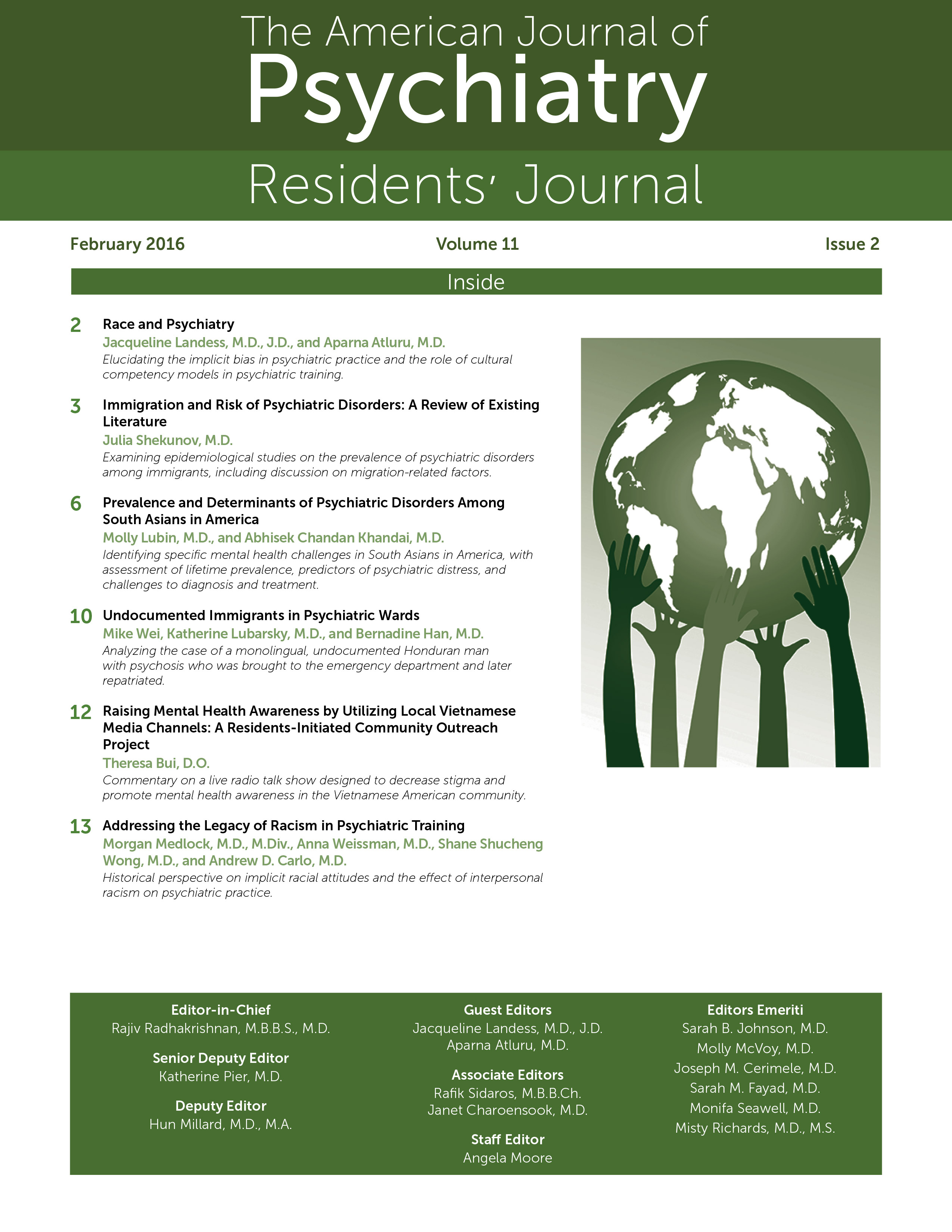The field of psychiatry developed at the time of colonialism and slavery when myths of racism were being integrated into European culture. By the end of the 19th century, it was accepted by many psychologists that members of the African race had smaller brains, as well as a more natural instinct for labor, and were “psychologically adolescent” compared to members of the European race (
1). “Drapetomania” was the term used for the supposed mental illness that caused Africans to flee captivity (
2).
In America, the Abolitionist and Civil Rights movements were met with mistrust and prejudice by mental health practitioners. African Americans, angry about their oppression, were labeled “schizophrenic,” due to their supposed “pathological” reaction of emotional disharmony, hostility, and aggression (
1). The over-diagnosis of schizophrenia among African Americans persists today, along with myriad other racial inequities in mental health practice (
3).
This legacy of racism must be directly addressed within psychiatry if we are to move toward justice. Addressing racism within a formal didactic curriculum is an actionable challenge for the field.
While traditional medical education emphasizes mastery of cultural competencies, recent data demonstrate that racism education is paramount in changing implicit racial attitudes (
4). The most effective racism education includes the following three domains: 1) formal curricula (defined as lectures and required assignments), 2) informal or “hidden” curricula (defined as informal organizational culture), and 3) interracial contact (defined simply as interaction of people from different racial backgrounds). Graduate and post-graduate education presents a critical window of opportunity for integrating this evidenced-based framework.
In response to these data, psychiatry residents at Massachusetts General Hospital have launched a novel resident-led curriculum that intentionally moves beyond cultural competency and addresses racism directly. The lecture series, embedded within the Division of Public and Community Psychiatry, addresses all of the proposed domains of racism education, using a three-tiered paradigm—institutional, interpersonal, and internalized racism—as its organizing framework (
5). Lecture topics include the role of de facto racial segregation as a determinant of mental health access and outcomes, the social and mental health consequences of mass incarceration on communities, the effect of implicit bias and micro-aggressions on behavior and clinical decision making, and the patient experience of chronic oppression.
In a survey of PGY-3 residents completing didactic training on interpersonal racism and its impact on psychiatric practice, 100% identified racism as a topic that should remain in their didactics, felt the course was effectively taught, and believed that the resident speakers were ideal teachers. Peer-led curricula addressing racism in psychiatry may play a role in helping trainees identify their own biases and become better clinicians as well as advocates for systemic change in residency education. Racism education should be an integral part of psychiatric training.
Acknowledgments
The authors thank Dr. Derri Shtasel, Director of the Massachusetts General Hospital Division of Public and Community Psychiatry, for helping to make this important change in the curriculum.
